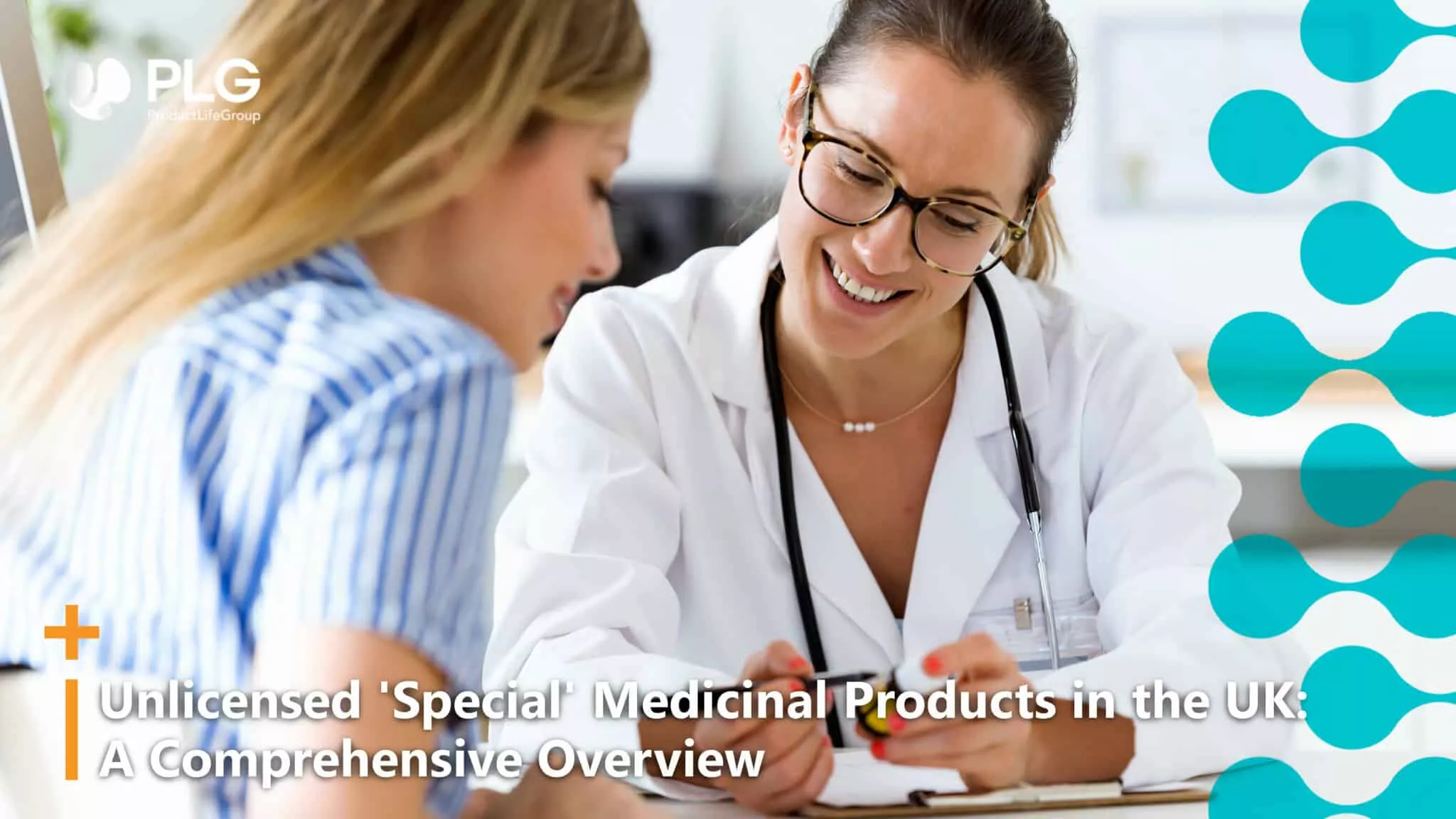
Unlicensed 'Special' Medicinal Products in the UK: A Comprehensive Overview
11 september 2023

Introduction
When licensed alternatives are unavailable or unsuitable, unlicensed medicinal products are crucial in patient care. These products, also known as “special,” are medications not authorised by regulatory authorities but are prepared and supplied to meet specific patient needs. In the United Kingdom (UK), unlicensed medicinal products are subject to specific regulations and considerations to ensure patient safety and access to necessary treatments. This article provides a comprehensive overview of unlicensed medicinal products in the UK, including their definition, regulatory framework, considerations for prescribers and pharmacists, patient access, and pharmacovigilance requirements.
Definition and Regulatory Framework
Unlicensed medicinal products refer to medications that have not undergone formal regulatory approval by agencies such as the Medicines and Healthcare Products Regulatory Agency (MHRA) in the UK. These products are often prepared bespoke to meet individual patient requirements, such as tailored dosage forms, strengths, or formulations. The need for unlicensed medicinal products arises when licensed alternatives are unavailable, unsuitable for a specific patient population, or do not meet a patient’s unique medical condition.
In the UK, the regulatory framework for unlicensed medicinal products is governed by the Medicines Act 1968 and subsequent regulations. According to these regulations, healthcare professionals, such as doctors and dentists, can prescribe unlicensed medicinal products based on their clinical judgment and the patient’s needs. Pharmacists and specialised compounding facilities are responsible for preparing and supplying these products.
Considerations for Prescribers and Pharmacists
Prescribers are critical in ensuring the appropriate use of unlicensed medicinal products. Before prescribing an unlicensed product, prescribers must thoroughly assess the patient’s medical condition, consider all available licensed alternatives, and document their decision-making process. They should also inform patients about the unlicensed nature of the medication, its potential risks and benefits, and obtain informed consent.
On the other hand, pharmacists play a pivotal role in the supply and quality assurance of unlicensed medicinal products. They must ensure these products are safe and effective preparation, adhering to established standards and good manufacturing practices. Pharmacists should maintain accurate records, including information about the product, its formulation, batch numbers, and the patient for whom it is intended. Documentation also extends to adverse drug reactions (ADRs), should they occur.
Patient Access and Considerations
Unlicensed medicinal products provide a lifeline for patients with limited or no treatment options. However, their availability and accessibility can vary depending on several factors. Unlicensed medicinal products may sometimes be imported from other countries to meet specific patient needs. The Specials Manufacturers and Importers (SMP) scheme regulates the importation and supply of unlicensed medicinal products in the UK, ensuring they meet quality and safety standards.
Patient access to unlicensed medicinal products is determined by several factors, including the clinical judgment of the prescriber, the availability of licensed alternatives, and the feasibility of obtaining the product. In cases where an unlicensed product is the only viable option, patients may need to provide informed consent and acknowledge the potential risks involved.
Pharmacovigilance Requirements
Pharmacovigilance, the monitoring and reporting adverse drug reactions (ADRs) and other drug-related safety concerns, is of utmost importance for unlicensed medicinal products. UK manufacturers and importers of unlicensed medicinal products must communicate all suspected adverse drug reactions (ADRs) to the MHRA (Regulation 170, 2012 Regulations). Manufacturers should report a suspected ADR immediately and, in no case later than 15 calendar days from receipt, stating that the product is unlicensed. Reports should be submitted electronically using the ICH-E2B standard electronic report and via the MHRA Gateway. Prescribers and pharmacists supplying “special” should report ADRs using a Yellow Card form or an electronic Yellow Card, stating the manufacturer and indicating that the product is unlicensed. The pharmacovigilance obligation of Unlicensed ‘Special’ Medicinal Products remains the same as the Guidance document published by MHRA.
Conclusion
Unlicensed medicinal products fill an important gap in patient care by providing tailored treatments when licensed alternatives are not available or suitable. The UK’s regulatory framework and considerations surrounding these products ensure patient safety and access to necessary treatments. Prescribers, pharmacists, and regulatory authorities collaborate to monitor and report potential adverse effects through pharmacovigilance systems. As medical needs evolve, ongoing evaluation and adherence to best practices in using unlicensed medicinal products will continue to be vital in ensuring optimal patient care and safety.
What PLG offers for Regulatory and Pharmacovigilance Requirements
PLG offers extensive support for Regulatory and Pharmacovigilance requirements for those MAH manufacturing, supplying Unlicensed ‘Special’ Medicinal Products and wants to apply for authorisation in the UK. PLG has experts with great experience in MHRA UK regulations and guidelines for Unlicensed ‘Special’ Medicinal Products. These experts also undergo continuous training to update them on the recent changes in the guidelines and legislations applicable to Pharmacovigilance and Regulatory Affairs.
Register to our news and events
Go to our Events to register
Go to our News to get insights
